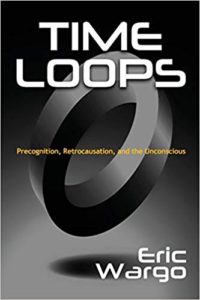A Mime in the Glass Box of Science
My last post was partly about the impossibility of psychic phenomena — especially telepathy. That is, the impossibility of thought to travel between minds in any other way than by a physical signal receivable and readable ultimately by the private machine language of the brain. In other words, I was taking a firmly materialist assumption of thought. Mind exists in matter, and cannot exist apart from it. But even as I was putting that argument into words, I felt uneasy, even (dare I say) “dirty.” I wasn’t sure if I actually believed what I was writing.
Do I actually think thoughts can only be material? Do I really not think that consciousness could have any kind of existence outside of physical neurons or circuits? Why do I think this?
The part of me that adheres to such a view is the product of Enlightenment rationality and psychology. Science has never questioned that the brain was the seat of thinking. The study of anatomy and observation of people with brain injuries since time immemorial has made clear the brain’s special role in thought—if only as some kind of transducer. It is possible even the ancient Egyptians knew about the special functions of certain of the brain’s lobes. By Freud’s time, even though neurons were not yet understood, he could create a theory of how the brain was essentially a machine for thinking. (The metaphor he used was hydraulics, because electricity was still new.)
Now, more than ever before, science is able to actually show us “thinking” as it occurs in the brain. We can map out what kinds of thoughts, what parts of our mental life, arise from activity in which areas and involve which specific circuits. It is even possible to record the firing of individual neurons and know their function in the organism’s behavior. From a rationalistic point of view, these advances put the material basis of thinking beyond question. They make it easy to dismiss the notion that a person’s mind, memories, sense of self, etc. – their “soul” – could depart the body, or survive beyond the decay or destruction of the body. The brain is more than a transducer, it seems: It’s where thought is born and lives, and where it has to stay. This makes most who study the matter of the mind dismissive of the notion of anything like the soul.
Why, then, do I feel like some kind of resentful spoilsport when I follow suit? I have no counterargument or alternative explanation for the self-evident materiality of mind, so why do I feel a twinge of guilt when I argue against psychic phenomena or disembodied thoughts in a blog post? Why do I feel like I have diminished myself ever so slightly? I’ve written before about the “rudeness of science,” but I don’t think my reaction was just guilt at being impolite or arrogant at dismissing what other people believe. I really think it is because this rationalistic/materialistic part of me is just that – a part of me, but not the entirety. I know that the brain is in the mind as much as the mind is in the brain.
“Diminishing oneself” is a real thing: pretending to be smaller than you are, crouching down to fit inside the cramped box of an identity (such as “rational skeptic”) – rather than standing tall within the fullness of your possibilities as a human. This kind of “crouching down” means restricting your vision, narrowing your gaze to only include some segment of what lies within your larger purview or field of awareness. Because any identity box is just an idea, it’s apparent limitations don’t really exist, so to make them convincing to ourselves and others they must be “mimed.”
I think we are all, even the wisest of us, to some extent like mimes doing the “trapped in a glass box” thing. It’s more than just playing or acting out our social roles; I’m referring to something inner, an inner sense of oneself. A banker who thinks that his identity as a businessman exhausts his possibilities as a human, is really just miming a reduced model of himself. A depressed person who keeps trying to fit every fact about their life into their diagnosis is likewise caught up in a mime act. Same with any identity: Black, White, Woman, Man, Gay, Straight, Christian, Jew, Atheist… When I, even in the privacy of my own head, put on the pompous airs of a scientist who can explain why the soul doesn’t exist, I am really miming a constraint in my thinking that doesn’t necessarily need to be there. I’m pretending to be smaller or more limited than I really am.
There are certain “glass boxes” we have a hard time questioning. Science, because it is so persuasive and powerful, is one of them. But the more a thing seems self-evident, the more it should be questioned and challenged. In this way, we make ourselves bigger. (That kind of fundamental skepticism should help sharpen science, too.)
All this is to say, I suppose, that I’m going to try to be more open minded.




In Hinduism, the brain and the mind are considered related but different, with the mind being the “greater,” more profound/elevated, of the two. The mind is sort of the translator of the brain, the soul/self-based decision-maker that decides what to do with the information gleaned by the senses and acknowledged by the brain — brain as car, mind as driver. This seems so right… and goes a long way towards explaining why two people experiencing the same sensory or intellectual information can come to two radically different interpretations and choices of reactions. And it’s much less self-limiting, in part because it allows us to be higher-“minded” no matter the relative quality of our brains.
I’ve just discovered your blog, Eric, thanks to a link from one of Rick Phillips’s sites… and I’m very glad that I clicked that link.